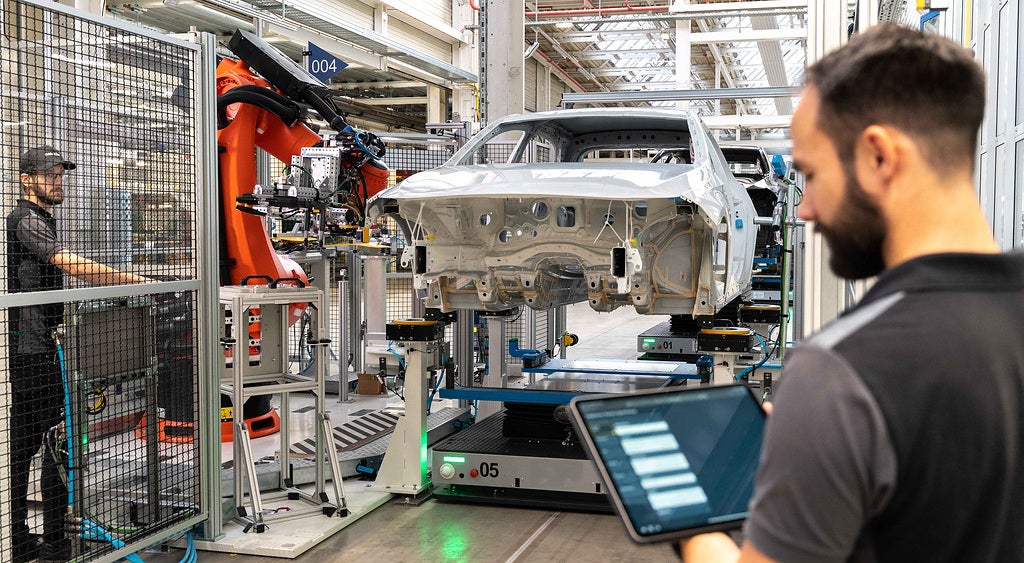
According to the Capgemini Research Institute, automotive organizations now feel more confident to tackle future supply chain disruptions.
In a new research report, Capgemini says automakers have been forced to rethink, restructure, and refinance their supply chain management. It says while issues have been stabilized in the short-term, supply chains are still transforming due to their complexity and evolving factors:
- the acceleration of electric vehicle (EV) production;
- the new regulatory and government policies;
- the adoption of more software-based features like ADAS increasing the demand for semiconductors.
A global restructuring of supply chains is underway as procurement from offshore locations fell by 22% in the past two years, according to Capgemini. Europe leads this trend having reduced offshore procurement by a quarter since 2021. This is followed by APAC and the US who have reduced offshore sourcing by 20% and 18% respectively.
The report finds that automotive organizations expect procurement from offshoring locations to reduce by a further 19% by 2025, as electric vehicle production surges and the fabrication of key electronics components relocates.
Sustainability efforts ‘faltering’ in the automotive supply chain
Successive supply chain crises have also sapped automakers’ time and diverted focus and investment away from sustainability initiatives, Capgemini says. Consequently, sustainability is not currently considered a priority for many of them, with only 37% of respondents stating that issues such as carbon footprint management and environmental risk influence supply chain decision-making. Investment across the industry reflects this trend and while OEMs’ total investment in supply chain sustainability is on par with last year, suppliers’ annual investment has significantly reduced by 17%.

US Tariffs are shifting - will you react or anticipate?
Don’t let policy changes catch you off guard. Stay proactive with real-time data and expert analysis.
By GlobalDataWhile sustainability and circularity are key components for building a more resilient supply chain and to future-proof operations, the scaling of circular-economy initiatives has been delayed due to a shortage of suppliers of recycled materials (and of the materials themselves).
Capgemini says automotive organizations need to balance sustainability and circular economy with factors like cost and affordability. According to the report, digital solutions can help address this delicate balance between these various competing factors.
The creation of new supply chains for semiconductors and electric vehicles will accelerate nearshoring
Driven by a surge in efforts to deliver software-based features and services, the average proportion of vehicle value attributed to semiconductors and sensors increased by 51% over the last two years. This is expected to increase by a further 46% between 2023 and 2025.
However, only half of OEMs consider the current supply of semiconductor components as secure. Of those surveyed, 70% said the majority of supply is currently being obtained from China, Taiwan, Japan, and Korea. In a bid to achieve a greater level of supply-security OEMs are investing in alternative supply methods and moving away from tier-1 and -2 suppliers. Similarly, OEMs have secured only three years of EV battery raw materials on average.
Alexandre Audoin, Global Head of Automotive Industry at Capgemini, comments: “Over the past few years, organizations have been forced to restructure and refinance supply chain management on the fly in order to navigate multiple disruptions from all fronts.
“While in a more positive place today, automakers need to look at delivering a long-term, intelligent, and data-driven strategy that will build resilience and competitive advantage. More so, this needs to incorporate circularity as an essential component, not only to help organizations navigate regulatory changes, but to embed new players in the supply chain ecosystem and also achieve ambitious climate-targets.”


